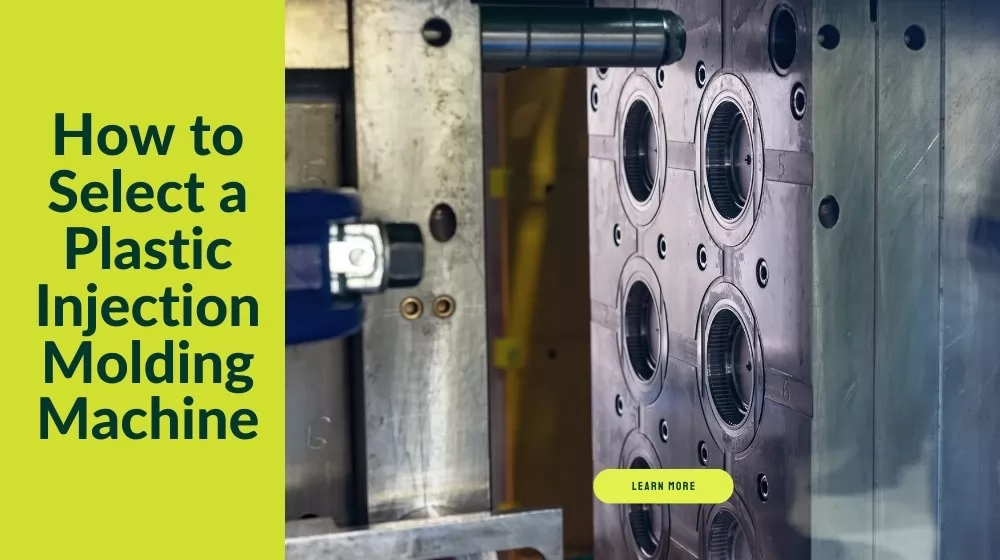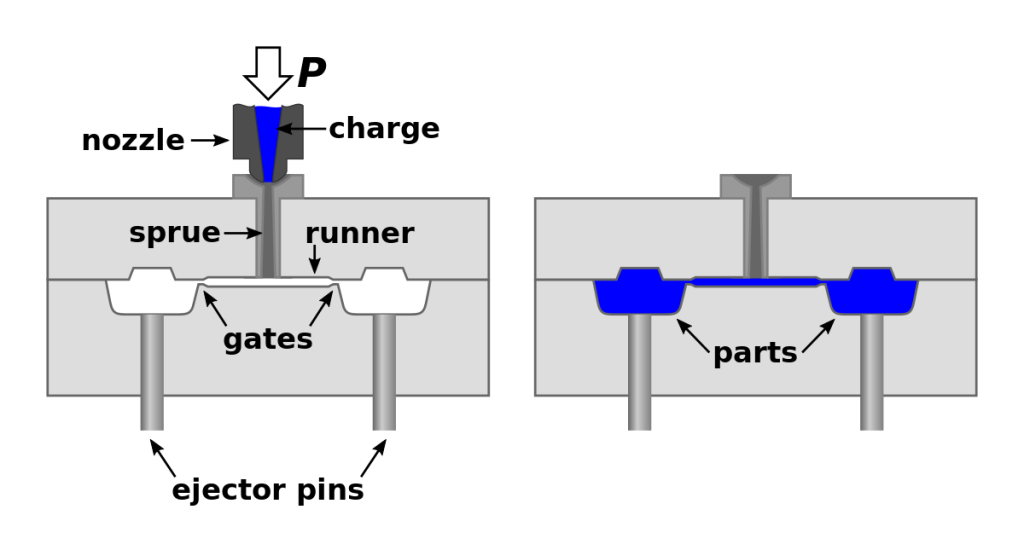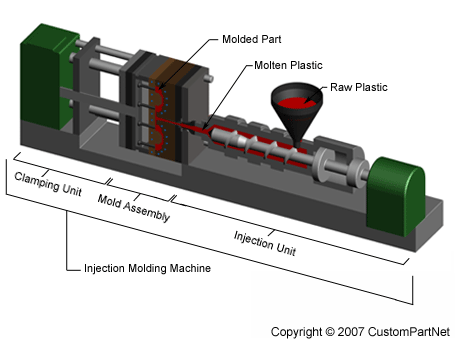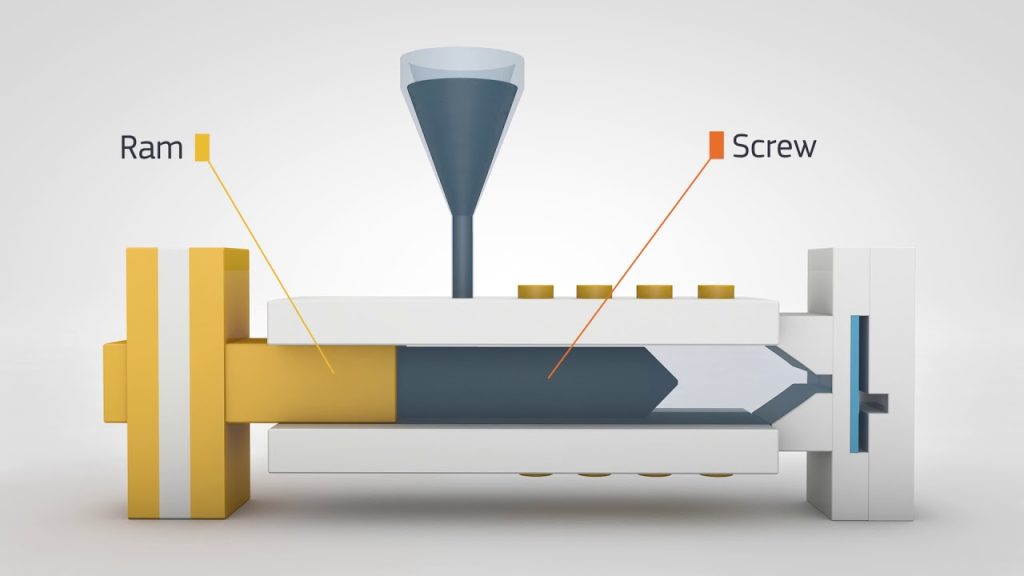Table of Contents
- How to Select Injection Molding Machine?
- Frequently Asked Questions
- What factors should be considered when selecting an injection molding machine?
- What is the difference between hydraulic and electric injection molding machines?
- What is the importance of machine tonnage in injection molding?
- What safety features should be considered when selecting an injection molding machine?
- What are some common maintenance requirements for injection molding machines?
Injection molding machines are the backbone of the manufacturing industry. They are widely used to produce a vast range of plastic products, from toys to medical devices. The selection of the right injection molding machine is crucial for the success of any manufacturing process.
But with so many options available in the market, it can be challenging to choose the right one. In this article, we will guide you through the essential factors to consider when selecting an injection molding machine, ensuring that you make an informed decision that meets your production needs and budget.
- Identify the type of plastic material used in the production process.
- Determine the required clamping force, which depends on the size and weight of the part.
- Calculate the shot size, or the amount of plastic needed to fill the mold cavity.
- Consider the mold size and the number of cavities needed for production.
- Check the machine’s injection pressure and speed, as well as its heating and cooling capabilities.
- Verify the machine’s compatibility with automation and auxiliary equipment, such as robots and conveyors.
- Compare the machine’s price and warranty with those of other manufacturers.
How to Select Injection Molding Machine?
Selecting the right injection molding machine is crucial for achieving optimal production efficiency and quality output. With a wide range of machines available in the market, it can be overwhelming to choose the right one. Here are some essential factors to consider when selecting an injection molding machine.
Production Requirements
The first step in selecting an injection molding machine is to determine your production requirements. This includes the type of products you will be manufacturing, the required production capacity, and the number of machines needed. Some machines are designed for specific applications, such as high-speed or precision molding, while others are more versatile.
Once you have determined your production requirements, consider the size of the machine. Machines come in various sizes, and you need to select one that can accommodate the size of your product. Additionally, consider the number of cavities you need, as this will affect the production volume.
Machine Specifications
The machine specifications are critical in determining the machine’s performance and capabilities. Look for machines with advanced features such as digital controls, automatic lubrication, and safety features. Check the machine’s speed, pressure, and temperature capabilities, as these will affect the quality and consistency of your products.
Another essential specification to consider is the injection unit size. The injection unit size determines the maximum shot size the machine can handle. Ensure that the machine’s injection unit size can accommodate your product’s shot size requirements.
Energy Efficiency
Energy efficiency is another important factor to consider when selecting an injection molding machine. Look for machines with energy-saving features such as variable frequency drives and servo motors. These features can significantly reduce energy consumption and save costs in the long run.
Additionally, consider the overall power consumption of the machine. Machines with higher power consumption can lead to higher operational costs. Look for machines that are energy-efficient and meet your production requirements.
Maintenance and Support
Maintenance and support are crucial in ensuring your machine’s longevity and optimal performance. Look for machines from reputable manufacturers who offer reliable support and maintenance services. Ensure that replacement parts are readily available and that the manufacturer offers technical support and training.
Consider the machine’s overall maintenance requirements, such as cleaning and oiling. Machines with easy-to-maintain features can save time and reduce operational costs.
Cost
The cost of the machine is an essential factor to consider when selecting an injection molding machine. Look for machines that offer a balance between cost and performance. Avoid machines that are too cheap, as they may compromise quality and performance.
Consider the long-term costs of the machine, such as operational and maintenance costs. Additionally, look for machines that offer a good return on investment and can meet your production requirements.
Brand and Reputation
Selecting a machine from a reputable brand can ensure quality and reliability. Look for manufacturers with a good reputation in the industry and check their track record. Consider the brand’s customer support and after-sales service, as these can significantly impact your production.
Additionally, consider the brand’s innovation and technological advancements. Machines with advanced features and technology can improve production efficiency and product quality.
Machine Size and Layout
The size and layout of the machine are crucial in determining the machine’s compatibility with your production facility. Consider factors such as the machine’s height, width, and depth, as well as the required floor space. Ensure that the machine can fit through your facility’s doors and corridors.
Additionally, consider the machine’s weight and the required foundation. Machines with larger tonnage require a more robust foundation. Ensure that your facility can accommodate the required foundation and weight.
Safety Features
Safety features are crucial in ensuring the safety of operators and preventing accidents. Look for machines with advanced safety features such as emergency stop buttons, safety interlocks, and guards. Ensure that the machine complies with local safety regulations and standards.
Additionally, consider the machine’s noise level and vibration. Machines with excessive noise and vibration can lead to operator fatigue and affect production quality.
Versatility
Versatility is another important factor to consider when selecting an injection molding machine. Look for machines that can handle a wide range of materials and products. Additionally, consider machines with multi-component injection capabilities, as these can significantly improve production efficiency and reduce costs.
Training and Technical Support
Training and technical support are crucial in ensuring the optimal performance of your injection molding machine. Look for manufacturers that offer training and technical support services. Ensure that the manufacturer provides comprehensive training on machine operation, maintenance, and troubleshooting.
Additionally, consider the availability of technical support and spare parts. Machines with readily available spare parts can minimize downtime and reduce operational costs.
In conclusion, selecting the right injection molding machine requires careful consideration of various factors. By considering the machine’s production requirements, specifications, energy efficiency, maintenance and support, cost, brand and reputation, size and layout, safety features, versatility, and training and technical support, you can select a machine that meets your production needs and ensures optimal performance.
Frequently Asked Questions
Here are some commonly asked questions about selecting an injection molding machine.
What factors should be considered when selecting an injection molding machine?
There are several factors to consider when selecting an injection molding machine, including the size and shape of the part to be molded, the type of material to be used, the required production volume, and the budget available for the machine. It is important to choose a machine that can handle the specific requirements of the project, as well as one that fits within the available budget.
Additionally, considerations such as the machine’s energy efficiency, ease of use, and maintenance requirements should also be taken into account. Consulting with a knowledgeable supplier or manufacturer can help ensure that the right machine is selected for the job.
What is the difference between hydraulic and electric injection molding machines?
Hydraulic and electric injection molding machines differ in the way they generate and control the pressure used to inject the molten material into the mold. Hydraulic machines use hydraulic pumps and valves to create the necessary pressure, while electric machines use electric motors and servo motors.
Electric machines are generally more energy efficient and have faster cycle times, making them a good choice for high-volume production runs. However, they may be more expensive upfront than hydraulic machines. Hydraulic machines are still widely used and are often a more cost-effective option for smaller production runs or for molding parts with complex geometries.
What is the importance of machine tonnage in injection molding?
Machine tonnage refers to the clamping force that the machine can generate to hold the mold closed during the injection process. The required tonnage depends on the size and shape of the part being molded, as well as the material being used.
Choosing the right tonnage is important to ensure that the mold is securely held closed during the injection process, which can affect the quality of the finished part. A machine with too little tonnage may not be able to hold the mold closed, while a machine with too much tonnage may damage the mold or cause other issues. It is important to consult with a knowledgeable supplier or manufacturer to determine the appropriate tonnage for the project.
What safety features should be considered when selecting an injection molding machine?
Safety should be a top priority when selecting an injection molding machine, as the process involves high temperatures, pressure, and moving parts. The machine should have safety features such as guards and interlocks to prevent access to hazardous areas during operation.
Other safety features that may be available include emergency stop buttons, safety mats, and safety curtains. Additionally, it is important to ensure that the machine is properly grounded and that all electrical components are installed and maintained according to safety standards.
What are some common maintenance requirements for injection molding machines?
Regular maintenance is important to keep an injection molding machine operating smoothly and to prevent downtime or equipment failure. Common maintenance requirements include cleaning and lubrication of moving parts, inspection and replacement of worn or damaged components, and calibration of sensors and controls.
It is also important to follow the manufacturer’s recommended maintenance schedule and to use only approved replacement parts and lubricants. Regular training for machine operators and maintenance personnel can help ensure that the machine is operated and maintained properly.
In conclusion, selecting the right injection molding machine is crucial for the success of any manufacturing project. There are several factors to consider, such as the type of product you want to produce, the material you will be using, and the quantity you need to manufacture.
One of the most important considerations is the machine’s tonnage, which determines the clamping force required for the mold. Other factors, such as the machine’s shot size, injection pressure, and cycle time, also play a significant role in the manufacturing process.
Ultimately, the key to selecting the right injection molding machine lies in understanding your unique production needs and choosing a machine that can meet those requirements. By doing your research, considering all the factors, and working with a trusted supplier, you can ensure that your injection molding project is a success, from start to finish.
Request a quote today!
[contact-form-7 id="1578" title="Contact form"]
Please compress the file into a ZIP or RAR file before uploading. Alternatively, send through your RFQ by email.
enquires@unitymanufacture.com





